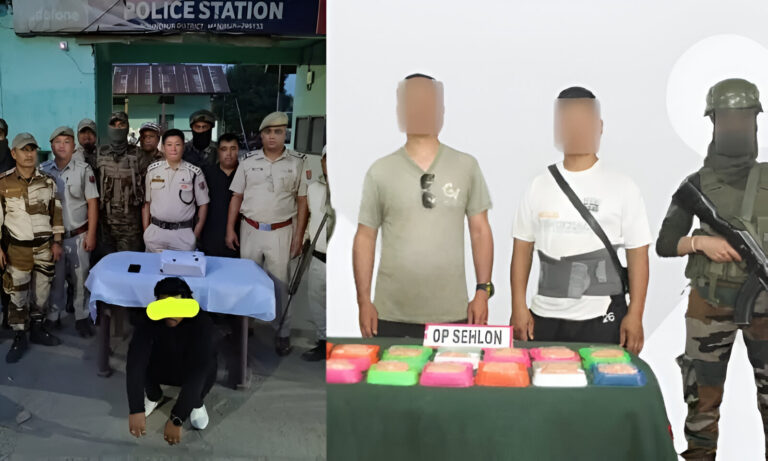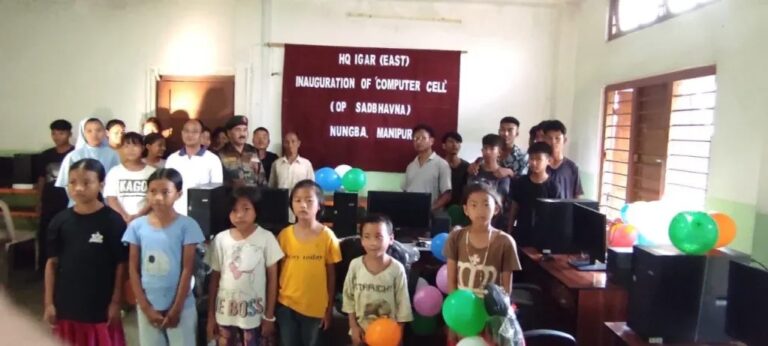Urgent Call for Action on Human Rights in Manipur: Insights from International Human Rights Day Observance
Summary
On International Human Rights Day, organizations like the Centre for Social and Constitutional Human Rights (CSCHR) and the Manipur People’s Coalition for Constitutional Rights (MPCCR) spotlighted urgent issues plaguing Manipur. The day’s events emphasized the pressing need for systemic reforms, justice, and accountability in addressing human rights abuses in the region. Calls for governmental intervention, grassroots advocacy, and international attention underscored the path forward for restoring dignity and justice in Manipur.
Long-Form Article
What’s Happening in Manipur?
Manipur, nestled in India’s northeast, is a state rich in culture but marred by decades of socio-political unrest. For years, it has been a flashpoint of ethnic conflict, militarization, and human rights abuses. This year’s International Human Rights Day brought these concerns to the forefront, with organizations like CSCHR and MPCCR urging immediate action to combat systemic injustices.
So, why does Manipur’s plight demand our attention? Because this isn’t just a regional issue—it’s a reflection of the broader struggles for justice, equality, and dignity worldwide.
The Significance of International Human Rights Day
Every December 10, the world unites to commemorate International Human Rights Day, marking the adoption of the Universal Declaration of Human Rights in 1948. It’s a day to celebrate progress, but also to confront ongoing struggles.
This year, in Manipur, the focus wasn’t just on lofty ideals but on tangible, urgent issues like extrajudicial killings, forced disappearances, and suppression of free speech. CSCHR and MPCCR, alongside activists and scholars, held discussions and rallies to demand action. They’re saying: “It’s time to stop talking and start doing.”
Spotlight on Human Rights Violations
Manipur’s story is one of resilience amidst adversity. Yet, the state’s citizens face challenges that can’t be ignored:
- Militarization and AFSPA: The Armed Forces Special Powers Act (AFSPA) has long been a contentious issue in Manipur. While intended to maintain order, critics argue it’s been a tool for unchecked state violence.
- Ethnic Conflicts: Deep-rooted divisions between ethnic groups have fueled violence and displacement, creating a humanitarian crisis.
- Suppression of Activists: Activists and journalists in Manipur often face intimidation and arrest for speaking truth to power.
The Human Rights Day observance shed light on these issues, making an impassioned plea for justice and reform.
The Role of CSCHR and MPCCR
CSCHR and MPCCR aren’t just acronyms—they’re lifelines for Manipur’s citizens. These organizations:
- Document Violations: They meticulously record instances of abuse, creating an undeniable trail of evidence.
- Advocate for Policy Changes: By engaging with policymakers, they push for legislative reforms, including the repeal of AFSPA.
- Empower Communities: Grassroots activism is at the heart of their work, ensuring that even the most marginalized voices are heard.
During their Human Rights Day events, they emphasized the importance of collective action, urging citizens, the government, and the international community to join hands.
Why the Global Community Should Care
You might wonder, “Why should I, someone miles away, care about Manipur?” Here’s why:
- Human Rights Are Universal: An injustice anywhere is a threat to justice everywhere.
- Lessons for Other Regions: Manipur’s challenges mirror those in other conflict zones, offering valuable lessons in conflict resolution and community building.
- Global Solidarity Matters: International pressure has historically been a catalyst for change. Think of apartheid or the civil rights movement.
Key Messages from the Observance
At the heart of the Human Rights Day observance were several key messages:
- End Impunity: Perpetrators of human rights abuses must be held accountable.
- Strengthen Civil Society: Grassroots organizations need support to continue their vital work.
- Demand Transparency: From law enforcement to legislative bodies, transparency is non-negotiable.
A Path Forward
What’s the way out of this quagmire? The Human Rights Day events outlined several actionable steps:
- Repeal AFSPA: This controversial law must go.
- Rehabilitate Victims: Those affected by violence need financial, emotional, and legal support.
- Promote Dialogue: Ethnic conflicts can only be resolved through open, inclusive conversations.
- Enhance Education: Knowledge is power. Educating communities about their rights is crucial.
Grassroots Heroes in the Fight for Justice
Amidst the darkness, there are beacons of hope. Activists like Irom Sharmila, who fasted for 16 years against AFSPA, inspire countless others to stand up. The Human Rights Day observance celebrated these heroes, reminding everyone that change is possible when ordinary people do extraordinary things.
Challenges Ahead
Of course, the road to justice isn’t easy. Manipur faces numerous obstacles:
- Political Resistance: Repealing AFSPA requires political will, which is often lacking.
- Resource Constraints: Activists and NGOs operate on shoestring budgets.
- Public Apathy: Many citizens feel powerless, leading to disengagement.
Yet, as the observance showed, these challenges are not insurmountable. With collective effort, change is within reach.
What Can You Do?
Feeling inspired? Here’s how you can help:
- Spread Awareness: Share stories from Manipur on social media.
- Support NGOs: Donate to organizations like CSCHR and MPCCR.
- Engage Politically: Write to your representatives, urging them to advocate for human rights.
The Power of Hope
Hope is a powerful thing. It’s what keeps activists going despite the odds. It’s what inspires communities to rebuild after conflict. And it’s what reminds us that a better world is possible.
As the Human Rights Day events in Manipur demonstrated, hope isn’t just an emotion—it’s a call to action. So, what will you do to answer it?
FAQs
- What is AFSPA, and why is it controversial? AFSPA, or the Armed Forces Special Powers Act, grants special powers to the military in “disturbed areas.” Critics argue it enables human rights abuses without accountability.
- What are the main human rights issues in Manipur? Key issues include militarization, ethnic conflicts, and suppression of free speech and activism.
- How do CSCHR and MPCCR contribute to human rights in Manipur? These organizations document abuses, advocate for reforms, and empower communities through grassroots activism.
- Why is international attention important for Manipur? Global solidarity can pressure authorities to enact reforms and support local activists in their efforts.
- What can individuals do to support human rights in Manipur? Spread awareness, support NGOs, and engage politically to advocate for change.



